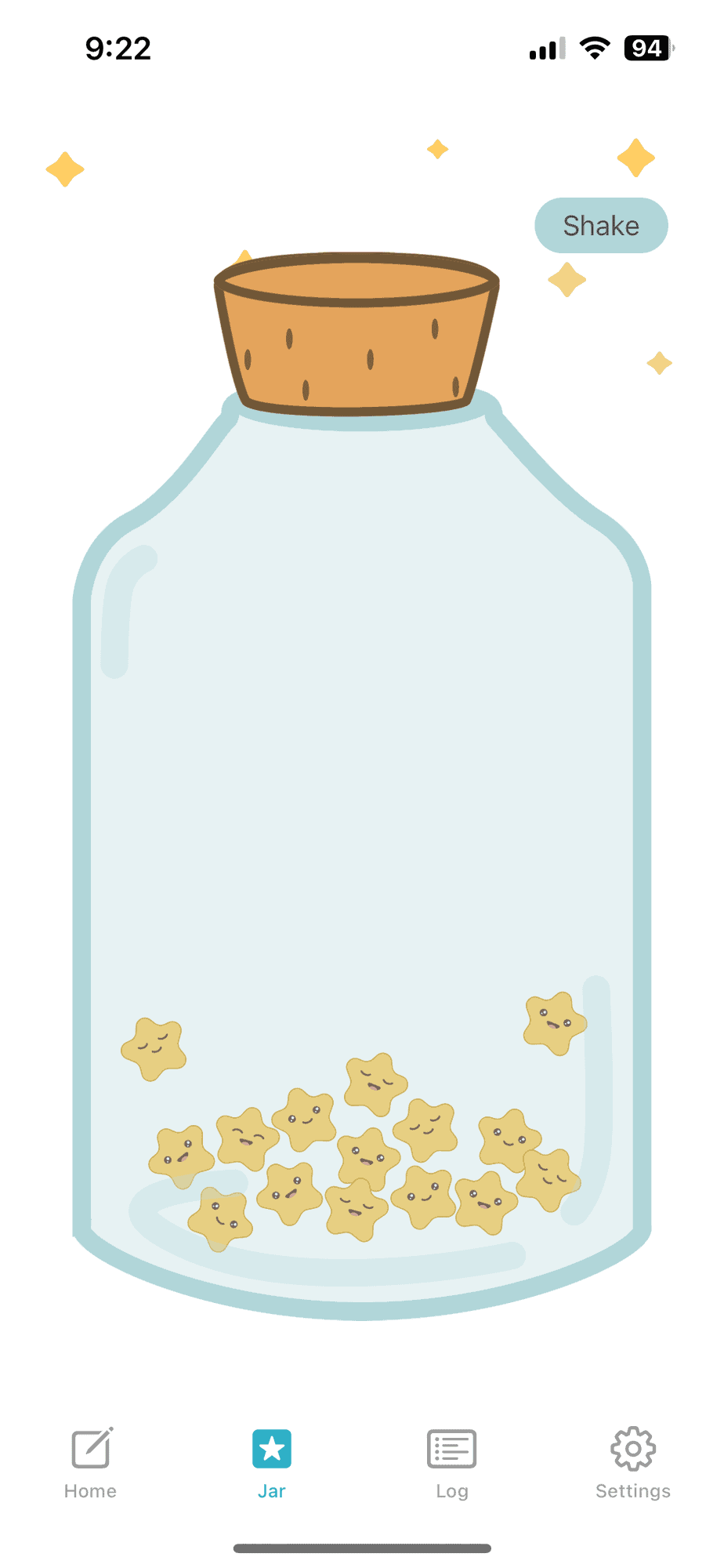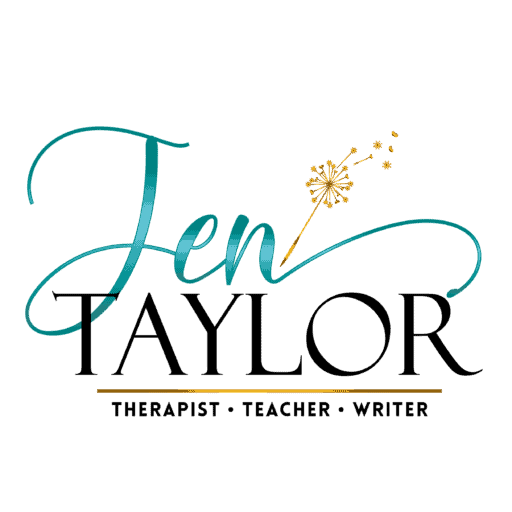How a gratitude journal improves your mental health: Plus my favorite Gratitude Journal App
Keeping a gratitude journal is probably the most recommended tool for entry-level journaling. You will see the recommendation to "write 3 things you are grateful for" as a tool provided by nearly all mental health professionals.
But where do you write these things? And do you ever go back and reflect on them? A few weeks ago, I stumbled upon the perfect solution for a digital gratitude journal. I shared it on my Facebook page and the people who tried it agreed - it's the best.
What do the experts say about practicing gratitude?
While the internet is filled with gratitude quotes, there is also a ton of research to support the benefits of a gratitude practice. Gratitude is even one of the character strengths listed in the VIA Character Strengths survey. It falls under the virtue, Transcendence. Here are a few notes that I've kept about gratitude:
Gratitude and Joy Go Together
Brene Brown, author of Daring Greatly, says that "gratitude emerged from the data as the antidote to foreboding joy." Foreboding joy is the anxiety that some people experience when life is going "too well." It's where the expression "waiting for the other shoe to drop" comes from. Brown says that people who are open to joy are often the ones that are most grateful.
Gratitude Improves Decision Making
According to Dan Sullivan, author of 10x is Easier than 2x, gratitude leads to the "most positive thinking, better decision making, higher performance, and self-determination." Sullivan also writes about gratitude in "The Gap and the Gain." When you think about what you have left to do, you're in the gap which releases stress hormones. When you look at how far you've come (the gain) your body releases dopamine instead. He also writes that people make the best decisions when feeling grateful because they find it easier to see the best options available to them.
Gratitude Helps You Sleep Better
When gratitude is practiced at night time before you go to sleep, it improves your sleep quality according to researcher Alex Wood of the University of Sterling. Lea Waters reported Wood's research in the book, "The Strength Switch" which says that if you practice gratitude before bed you not only fall asleep faster but stay asleep longer.
What is a gratitude journal?
A gratitude journal is any method that you have for capturing things that you want to savor. A gratitude journal can be as simple as noting one good thing that happened during your day. It could be a longer list of 3-5 things that you are grateful for.
You might keep a notebook by your bed or on your desk that is just for gratitude notes. Sometimes, people make a note in their calendars or planners. You may have heard about the people keeping a physical "Gratitude Jar" and adding a little post-it note for every good thing that happens.
The key to gratitude is really in the simple joys. Notes do not have to be life-changing events. It could be as basic as "the sky was blue today" or "the baby slept in." In fact, often the smaller the thing, the better.
Using your gratitude journal to reflecting on the past
One of the best reasons to keep your gratitude notes organized in a notebook, calendar or jar is so that you can go back and review the notes later. This practice of reviewing the things that brought you joy in the past is called reminiscent savoring.
Reminiscent savoring is a term used by Fred Bryant, PhD that talks about savoring as a coping skills for stressful times. Other research has confirmed that savoring of past events improves emotional well-being.
Use your gratitude journal to savor events that have not happened yet
Savoring can be future oriented as well. This version, anticipatory savoring, is being grateful for and relishing in the plans that you have made that have not happened yet. For example, you can be grateful that your partner purchased concert tickets and imagine the fun you will have during that event. That's anticipatory savoring.
A note about keeping a Gratitude Journal when life feels really hard...
For those of you reading this who are in the midst of something really painful: the death of a loved, a terminal or chronic illness, financial distress, etc - I also understand that this might feel really ridiculous. Gratitude may feel out of reach for you in this moment.
And while I truly believe that finding small joys within the challenge IS good for your mental health, I also understand that it can be really hard. You might not be ready to start today, because anger is one normal phase of grief ...but when you are ready, the tools are there for you. For some, keeping track of the smallest joys is the only way to deal with the crippling emotions of a life-changing crisis.
My favorite recommendation for A Digital Gratitude Journal
I stumbled upon this digital version of a gratitude jar while looking for something else and I am so glad that I did. It's called The Gratitude Jar and it seems it is only available for iPhone users at this time. It's so good that I hope you can encourage versions for all other devices. You can find it in the App Store here.
The reasons that I use The Gratitude Jar App for my Digital Journal:
- This app is free! And I have not encountered any prompts to upgrade to a paid version.
- Every time you create a gratitude entry, the app creates a star to go along with that date. The star gets dropped into your jar and you accumulate stars over time.
- Each star is slightly different and that adds an extra bit of whimsy to the jar.
- The main picture is a visual of an actual jar where you can see all of your stars - it's always helpful to see a visual representation of your progress.
- You can "shake the jar" to see a random past entry - this helps with that savoring practice. (there's a sound effect that goes with dropping a star that you can turn on or off).
- A calendar also keeps track of your days journaled for the month and calculates your "streak" of days journaled in a row - which helps with habit formation.
- You can add multiple entries per date - so add them as you think of things and it will keep the days gratitude all organized in one entry. You only get one star per day though!
- There is also a log feature so that you can go back and review all of your past entries in chronological order.
- For those who need extra help with the journaling habit, there is a reminder setting where you can choose the time. Try it before bedtime to get those sleep benefits we talked about earlier.
- The jar resets every calendar year. There is a function for you to upload your past entries to iCloud before it resets.
Below are two screenshots from my jar - I started in January 2024 and have missed three days so far this year. My longest streak is 6 days. This practice is effective even when you are not using it every single day. However, the more you use it, the better it gets.

Jen Taylor's Gratitude Jar Star

One last note about gratitude journals
The more you practice the art of thankfulness, the more you have to be thankful for. Norman Vincent Peale
Iphone users, let me know if you love this app as much as I do. If you don't have an iphone, consider creating a physical gratitude jar, using a note-taking app on your device, or keeping a little notebook beside your bed.
If you found this helpful, subscribe to my mailing list for tips and strategies to help make the unmanageable or seemingly impossible feel a little more do-able! My focus is on actionable ways to thrive emotionally, excel professionally, and energize your own creativity.

0 comments